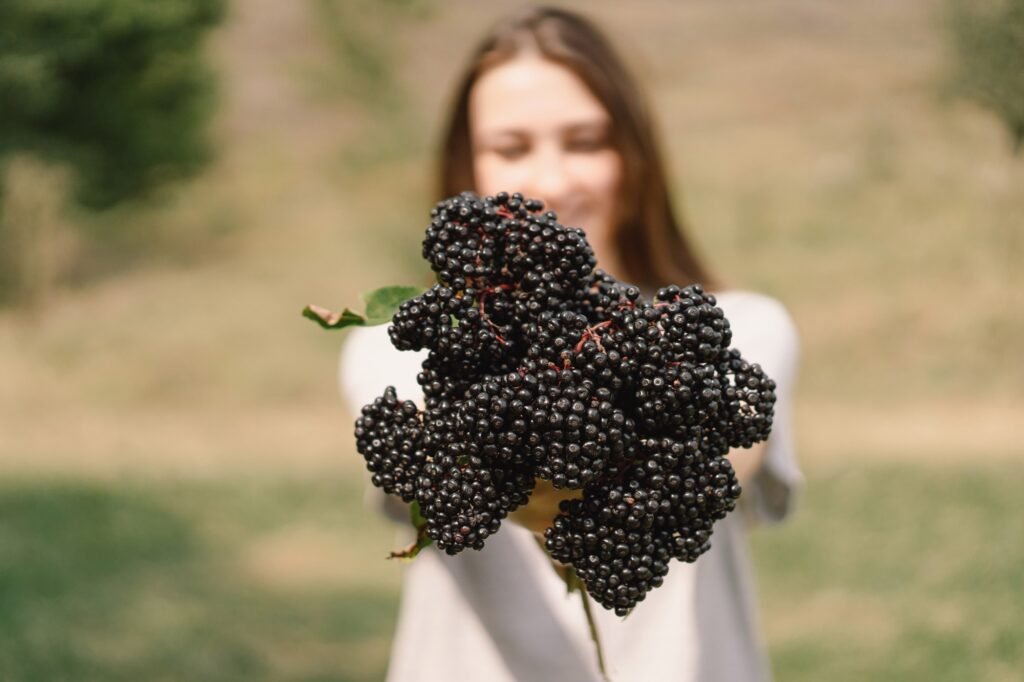A new study shows that consuming elderberry juice for just one week significantly improves fat oxidation, blood sugar levels, and gut microbiota, making it a promising addition to the diet for managing obesity in overweight adults. It became clear.
Image credit: Nastyaofly / Shutterstock
A study published in the journal Nutrients highlights the effectiveness of anthocyanin-rich elderberry juice in improving gut health and managing obesity in overweight or obese adults.
background
Obesity is a multifactorial disease with various cardiometabolic complications. Obesity rates in the United States are estimated at 42% and are projected to reach 48-55% by 2050.
Healthy dietary patterns, such as the Mediterranean-style diet, play an important role in reducing the cardiometabolic complications associated with obesity. This type of diet contains more fruits and vegetables, which are rich sources of various bioactive compounds such as polyphenols and flavonoids.
Anthocyanins are a subclass of flavonoids with known health benefits against obesity-related diseases such as diabetes, dyslipidemia, and cardiovascular disease. Evidence shows that anthocyanins exert health benefits by preventing the intestinal absorption of monosaccharides, increasing fat and muscle cell metabolism, and regulating the composition of the gut microbiota.
Elderberry juice contains very high amounts of cyanidin-based anthocyanins. Scientists in the current study found that rodents fed a 45% fat diet supplemented with 10% elderberry juice powder showed that the changes in gut microbiota, mediated in part by changes in the gut microbiome caused by elderberry juice, increased It has previously been shown to show improved clinical and metabolic outcomes.
In a randomized, placebo-controlled, crossover clinical trial, scientists investigated the effects of anthocyanin-rich elderberry juice on glucose tolerance, fatty acid oxidation, and gut microbiota in healthy overweight adults.
research design
The study was conducted on 18 overweight adults, who were randomly divided into an intervention group and a control group. All participants underwent two 1-week study intervention periods separated by a 3-week washout period.
In the intervention group, participants were given 100% elderberry juice twice a day for one week. In the control group, participants were given a flavor- and color-matched placebo drink every day for one week.
In a second 1-week intervention period that began after the washout period, the groups switched between the study interventions (elderberry juice and placebo drink).
Each intervention period included 4 days of controlled feeding with a 40% fat diet to facilitate comparison of study parameters between the two study groups. This crossover design allowed participants to serve as their own controls, increasing the robustness of our results.
important findings
A total of 18 participants completed the study protocol. Analysis of the self-report questionnaire revealed 100% compliance with test beverage intake. None of the participants reported experiencing gastrointestinal distress or being unable to consume prescribed foods or study beverages.
Indirect colorimetric-based measurements of carbohydrates, fat, respiratory quotient (CO2 produced/O2 expended), and energy expenditure showed that elderberry juice intake significantly increased respiratory quotient compared to placebo. It has been shown that it causes a decrease.
This corresponded to a significant induction of fatty acid oxidation and decreased carbohydrate oxidation in the elderberry juice group. Notably, fat oxidation increased during 30 min of treadmill walking, but the difference was only marginally significant (p = 0.071), meaning further investigation is needed to confirm this finding. I will. Regarding energy expenditure, no significant differences were observed between groups.
Elderberry juice consumption also significantly lowered respiratory quotient during moderate physical activity, indicating increased fat oxidation even outside of dietary restriction.
When it comes to glucose tolerance, a study found that an elderberry juice meal challenge was associated with a significant reduction in blood sugar levels and a moderate reduction in blood insulin levels.
Gut microbiota profiling
This study found that elder juice consumption significantly increased the abundance of Firmicutes and Actinobacteria and decreased the abundance of Bacteroidetes at the phylum level.
At the genus level, intake of elderberry juice increased Faecalibacterium, Ruminococcaceae, and Bifidobacteria, and decreased Bacteroidetes and lactic acid-producing bacteria. These observations indicate that elderberry juice has a positive impact on the gut microbiota profile. However, these changes were subtle and did not indicate significant changes in the microbiome.
Significance of the research
This study found that elderberry juice had positive effects on blood sugar tolerance, fatty acid oxidation, and gut microbiome profiles.
The study protocol included 355 grams of elderberry juice daily, which equates to over 720 milligrams of cyanidin-based anthocyanins. The study found that this therapy resulted in a 24% decrease in the glycemic response curve, a 9% decrease in the insulin response curve, and a 27% increase in fatty acid oxidation.
Regarding the gut microbiome profile, this study found that there was a slight improvement in the microbial community after consuming elderberry juice, indicating health benefits.
Taken together, these observations indicate that consuming elderberry juice for 1 week may effectively support obesity management in healthy adults with a body mass index (BMI) of 25 kg/m2 or higher.
However, this study has limitations. A one-week treatment period means it cannot provide the long-term safety profile and health benefits associated with consuming elderberry juice.
The two challenge meals used in the study showed a 15-gram difference in total carbohydrate content. Given this limitation, the scientists believe that while the observed improvements in glucose tolerance and insulin sensitivity are suggestive, additional approaches such as macronutrient and intermeal energy matching could better control dietary load design. It suggests that this needs to be confirmed through testing.
The scientists also highlight the need for future research to investigate elder juice’s mechanism of action using long-term clinical trials and preclinical and translational research models.
Reference magazines:
Teets, C., Ghanem, N., Ma, G., Minj, J., Johnson, S. A., Etter, A. J., Carbonero, F. G., and Solverson, P. M. (2023). In a randomized controlled trial, a 1-week elderberry juice intervention enhanced fecal microbiota, suggesting improvements in glucose tolerance and fatty acid oxidation. Nutrients, 16(20), 3555. DOI: 10.3390/nu16203555, https://www.mdpi.com/2072-6643/16/20/3555
Source link

